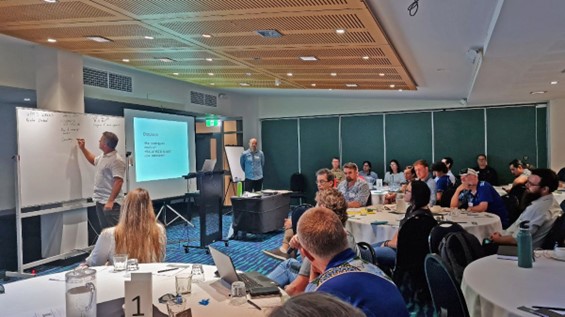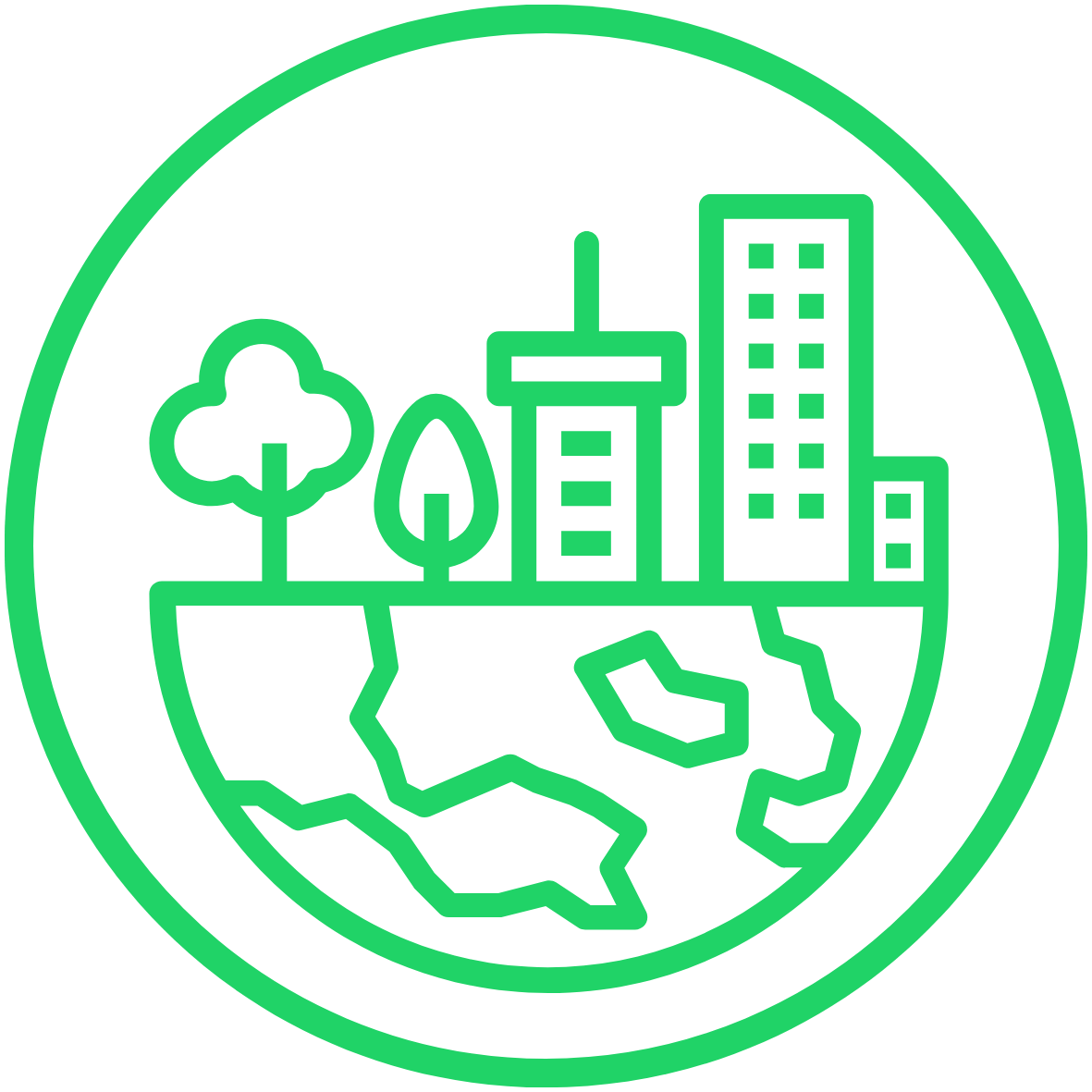
Queensland Urban Stormwater and Erosion and Sediment Control Community of Practice recap of a successful workshops
It's been a whirlwind couple of months for the Healthy Land & Water’s Water by Design team with the first ever statewide Urban Stormwater (USW) and Erosion and Sediment Control (ESC) Community of Practice (CoP) workshop finally coming to fruition at the end of February in Brisbane.
 |
Addressing challenges collaboratively |
|
 |
Capacity building |
|
 |
Stormwater and erosion and sediment control |
It was great to see so many dedicated practitioners from across the state all together in one room working towards a shared vision. Special thanks go to all the speakers, whose informative and engaging presentations sparked insightful discussions and provided an illuminating snapshot of some of the important work being done throughout Queensland.
The event
The event was held over three days from 20-22 February 2024 at the Colmslie Hotel in Morningside, and attracted over 100 attendees, representing 45 organisations from across Queensland.
The purpose of the workshop was to bring together Queensland USW and ESC stakeholders from government and industry to network, learn about best practice approaches and recent case studies, and discuss current issues and solutions. The workshop featured presentations from around the state on best practice approaches to USW and ESC management as well as facilitated discussion around current issues in policy and practice as well as potential solutions for improvement.
Day 1: Urban Stormwater CoP
The first day of the CoP was all about urban stormwater, with a jam-packed agenda kicking off with updates from the Water by Design team, Department of Environment, Science & Innovation (DESI), and Stormwater Queensland.

This was followed up by presentations by Tracie Harvison (Mackay Regional Council) and Kylie Drapala (Logan City Council), who both delved into the key success factors and learnings from each of their Council's water sensitive urban design (WSUD) asset management programs. Before breaking for lunch, we enjoyed a presentation from Emad Kavehei (City of Moreton Bay), who talked about the impact of filter media composition on treatment potential of bioretention basins and shared findings from City of Moreton Bay's recent bioretention basin condition assessment study.
Next up on the agenda was Shaun Leinster from Design Flow, who talked us through the results of their recent WSUD asset condition assessments across several local government areas in SEQ, and together with colleague Leon Rowlands (Design Flow), facilitated a workshop discussion tackling opportunities for improvement in WSUD asset design, installation, handover and maintenance. After a quick afternoon tea, we heard from Tim Fichera (Bundaberg Regional Council), who chronicled Bundaberg's shift in approach to urban waterway management to strive for healthy waterways that deliver increased social and environmental benefits.
|
Some feedback from attendees: "For me, coming in very green with limited knowledge, I took away a lot of new information and contacts from the GBR region to be able to network with." "[The best part was] networking with other likeminded professionals and the ability to look into how different Councils are working towards the same goals."
"It was all very helpful but hearing what other Councils had done and were aiming for was the best." |
Jamie Corfield (DESI) and Kara-Mae Coulter-Atkins (Dry Tropics Partnership for Healthy Waters) then gave us overview of the Urban Water Stewardship Framework (USWF), covering the latest results from the Great Barrier Reef (GBR) catchment and applicability of the UWSF in SEQ. Last but not least, Rebecca Allen and Rhianna Rickard from the Great Barrier Reef Marine Park Authority (GBRMPA) presented on the Reef Guardian Council program, highlighting some of the actions Reef Guardian Councils have taken to deliver tangible benefits to the Reef.
Day 2: Erosion & Sediment Control CoP
On the second day of the CoP we shifted our attention to erosion and sediment control, starting strong with the latest from the International Erosion Control Association (Australasia).

In his presentation, Dallas Frazier (IECA) provided an update on the highly anticipated Registered Soil Practitioner – Erosion and Sediment Control accreditation and introduced us to IECA’s exciting new On Country ESC training program with First Nations groups. We then had the chance to learn about three successful ESC compliance programs developed by SEQ Councils with presenters Lee Mason (Ipswich City Council), Rupert Hindley, Samantha Middleton, and Michelle Lowe (Sunshine Coast Council), and Garry Randall (Logan) taking us through their processes, lessons learnt, and results so far.
After a quick lunch, we got a taste of what's happening in the Reef region, with talks by Kate Lacy (Rockhampton Regional Council), who spoke about Rockhampton's transition to an ISO 14001 Environmental Management System, and Kylie Cauchi (Mackay Regional Council), who reflected on her ESC journey from consultancy to Council and shared Mackay's next steps towards improving compliance in the region.
Next, we heard from industry representatives Patrick Windsor (Shadforth Civil) and Clayton Tomson (BMD Urban), who presented on Shadforth and BMD's respective pathways to best practice and sustainable building and development through case study examples. We wrapped up the day with afternoon tea and speed networking, where stakeholders got an opportunity to meet and connect with colleagues from different regions.
Day 3: ESC Field Trip
On the final day, stakeholders from the GBR region were invited to visit an active, large-scale development site at the Gold Coast to see ESC best practice approaches in action and speak directly to the Shadforth team in charge of implementation.

Shadforth took attendees on a tour of the site, showcasing a range of key ESC measures and going over the methodology they used to address any site-specific challenges.
Healthy Land & Water gratefully acknowledges the support of our funders and partners, including the Queensland Government Department of Environment and Science, Australian Government, and local governments of the South East Queensland and Great Barrier Reef region.

